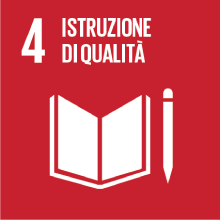OPTIMIZATION
- Anno accademico
- 2021/2022 Programmi anni precedenti
- Titolo corso in inglese
- OPTIMIZATION
- Codice insegnamento
- EM2Q12 (AF:358776 AR:188426)
- Lingua di insegnamento
- Inglese
- Modalità
- In presenza
- Crediti formativi universitari
- 7
- Livello laurea
- Laurea magistrale (DM270)
- Settore scientifico disciplinare
- SECS-S/06
- Periodo
- I Semestre
- Anno corso
- 1
- Sede
- VENEZIA
- Spazio Moodle
- Link allo spazio del corso
Inquadramento dell'insegnamento nel percorso del corso di studio
In fact, the course aims to provide students with the basic principles of Mathematical Analysis which bear special relevance in the study of Mathematical Economics.
The instructional goal of the course is to provide students with a general understanding of the mathematical objects used in Economics, in order
- to develop knowledge about their properties and the relationships between them;
- to find efficient methods to solve problems, both abstract and concrete, in Unconstrained and Constrained Optimization;
- to find efficient methods to solve problems, both abstract and concrete, in Static and Dynamic framework.
Risultati di apprendimento attesi
The course allows students to acquire knowledge for approaching the study of main economic problems where these tools are employed, both in static and in dynamic setting.
In particular, at the end of the course, the student is expected to be able of:
- knowing the theoretical results and the mathematical tools commonly used in the solution of Static or Dynamic Optimization problems;
- applying their knowledge and understanding, and problem solving abilities to formalize, discuss and solve Optimization problems;
- communicating the obtained results using a clear and appropriate mathematical notation and language, to specialist and nonspecialist audiences.
Prerequisiti
Reference: Chapters 2-5, Appendix A4, Chapters 7--14, 23, 26--28 of
Simon C.P., Blume L.E. (1994): Mathematics for Economists, W.W.Norton & Company Press, Cambridge, (1994).
Contenuti
- Basic concepts of Topology of R^n
- Unconstrained Optimization.
- Constrained Optimization (equalities, inequalities).
- Concavity/convexity in Optimization.
- Metric, normed spaces. Contractions. Fixed points. Banach's Theorem.
- Parametric continuity: Maximum Theorems.
- Discrete time optimization: FHDP problems. Bellman Principle.
- Discrete time optimization: SDP problems. Bellman Principle. Existence result.
Testi di riferimento
Before each meeting, detailed information on content and reading material (page numbers, selected exercises) will be made available to participants with reference to main textbooks.
Lecture notes, slides and exercises will be made available in the Moodle space of the course.
In alphabetical order:
Carter, M. (2001): Foundations of mathematical economics. MIT Press.
Iacopini M. (2016): Basics of Optimization Theory with Applications in MATLAB and R, Quaderni di didattica - Dip. di Economia, Ca' Foscari University of Venice
http://www.unive.it/pag/fileadmin/user_upload/dipartimenti/economia/doc/Pubblicazioni_scientifiche/quaderni_didattica/Quaderno_di_DIdattica_1_2016.pdf
Sundaram R.K. (1999): A First Course in Optimization Theory, Cambridge University Press, Cambridge.
Sydsaeter K., Hammmond P., Seierstadt A., Strom A. (2005): Further Mathematics for Economic Analysis, Prentice Hall.
Modalità di verifica dell'apprendimento
The first session takes place during the first semester (while the course is being taught), and it is articulated in a midterm partial written examination administered at the end of the first teaching period and a final partial written examination administered at the end of the second teaching period.
The final written evaluation is obtained as a weighted average of the two partial examinations and of attendance. The remaining sessions (from January until September) present a single comprehensive examination on the full contents of the course.
The objective of the examination is to test the student's ability to understand the problem set, to choose the most appropriate tools for solving the proposed problems, to rigorously apply the selected methods and to discuss the proposed solutions.
Written exams typically consist of exercises similar to those solved during the course, each exercise with its own score. In answering the exam no help can be used (books, notes, computers, calculators, web,…), but students are allowed to use an A4-sheet (one side) prepared by them at home.
The precise form of the final written exam will depend on the health situation and on the disposition of the national authority at the time. Detailed instructions will be given by the instructors in time to prepare for the exam.
Modalità di esame
Metodi didattici
The material will be presented rigorously during the class for the most important results and practical examples will be discussed. Each subject is organised and presented to allow students to progress incrementally in the development of their knowledge and skills.
Additional material (lecture notes and exercises) is made available before each class activity to participants. Students are solicited to download or print lecture notes to have them at hand during lectures in order to take their notes.
Lectures will be followed by practice sessions and students are expected to attend the classroom sessions, study the different topics, participate in class contributing with questions and comments.
Attendance to both lectures and practice sessions is strongly recommended. The teacher is weekly available to meet students for consultation during office hours.
Depending on the health situation, updates concerning the activities and their scheduling will be made available on the Moodle platform (moodle.unive.it) and on the personal page of the instructor.
Altre informazioni
Accessibility, Disability and Inclusion
Accommodation and support services for students with disabilities and students with specific learning impairments
Ca' Foscari abides by Italian Law (Law 17/1999; Law 170/2010) regarding support services and accommodation available to students with disabilities. This includes students with mobility, visual, hearing and other disabilities (Law 17/1999), and specific learning impairments (Law 170/2010). If you have a disability or impairment that requires accommodations (i.e., alternate testing, readers, note takers or interpreters) please contact the Disability and Accessibility Offices in Student Services: disabilita@unive.it.
Obiettivi Agenda 2030 per lo sviluppo sostenibile
Questo insegnamento tratta argomenti connessi alla macroarea "Capitale umano, salute, educazione" e concorre alla realizzazione dei relativi obiettivi ONU dell'Agenda 2030 per lo Sviluppo Sostenibile



